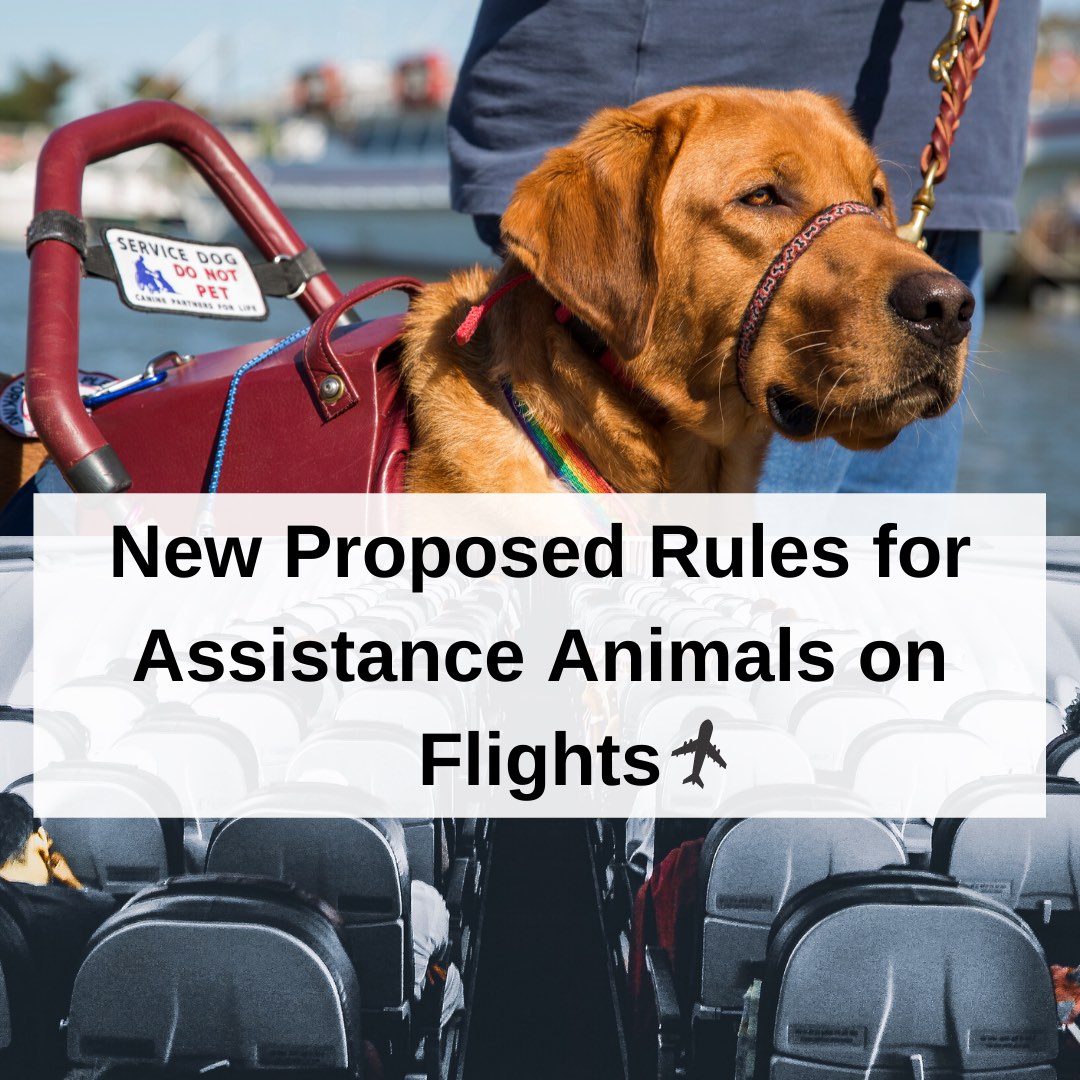 Disability Rights North Carolina (DRNC) is profoundly disappointed in the Department of Transportation’s (DOT) proposed regulations regarding service animals on aircrafts. Although intended to prevent airline passengers from falsely claiming their pets are service animals, the rules are misguided, overly broad, and will have harmful consequences for many individuals in the disability community. The rules propose to eliminate protections for emotional support animals and miniature horses, implement size restrictions for service dogs, and subject assistance animal handlers to overly burdensome and unnecessary paperwork.
Disability Rights North Carolina (DRNC) is profoundly disappointed in the Department of Transportation’s (DOT) proposed regulations regarding service animals on aircrafts. Although intended to prevent airline passengers from falsely claiming their pets are service animals, the rules are misguided, overly broad, and will have harmful consequences for many individuals in the disability community. The rules propose to eliminate protections for emotional support animals and miniature horses, implement size restrictions for service dogs, and subject assistance animal handlers to overly burdensome and unnecessary paperwork.
Assistance animals provide vital physical, mental, and therapeutic assistance to travelers with disabilities. The Department’s current regulations acknowledge that as times have changed, so has our understanding of the variety of aid assistance animals can provide to persons with disabilities. Along with that broader understanding, DOT extended the definition of service animals to be more inclusive of the variety of assistance animals that help persons with disabilities. Restricting the definition to exclude emotional support animals and miniature horses is a step backwards in our understanding of how assistance animals provide crucial benefits to persons with disabilities. Many individuals with disabilities, including veterans, cannot afford professionally trained service animals but instead find great therapeutic benefit from emotional support animals that help manage symptoms of disabilities. Miniature horses provide an important alternative to dogs for individuals that need service animals due to their strength, longevity, and because they provide an alternative for individuals with dog allergies. Eliminating protections for so many assistance animals strips necessary protections currently afforded to travelers with disabilities.
The most concerning proposed change regards size restrictions of service animals. Airplane seats and the space between them have shrunk 11%-20% since 1990, however dogs remain the same size. The most common service dog breeds are large dogs: Labrador retrievers, golden retrievers, and German shepherds to name a few. The new rules propose that service animals must be able to fit in the passenger’s legroom or they may not be able to fly with their handler. The size restrictions are an unforgivable attempt by the Department to effectively nullify protections for all service animals on planes. It is more likely the emotional support animals, which the proposed rules hope to eliminate from protections afforded to service animals, who can meet these unreasonable size restrictions.
Finally, the documentation requirements under the proposed rules are overly burdensome and subject passengers to additional administrative and financial costs. These documents require travelers to attest to their animal’s training and veterinarians to sign off on the animal’s good health. These forms do not provide any benefit that justifies the burden they place on passengers. Requiring these forms will not stop travelers from fraudulently passing off pets as assistance animals; they will merely subject persons with disabilities to additional administrative barriers before they can travel.
Assistance animals are not pets; they are a nonnegotiable part of the lives of people with disabilities. We would not ask passengers with disabilities to travel without their medications, and it is just as unreasonable to ask passengers with disabilities to travel without their assistance animals. If individuals with disabilities cannot travel with their assistance animals, the reality is that they will not travel. These proposed rules punish the disability community rather than the bad actors the rules claim to discourage. DRNC strongly opposes the adoption of these proposed rules and encourages DOT and other government organizations to discuss more effective and less discriminatory ways of handling disability issues with the Protection and Advocacy network.
